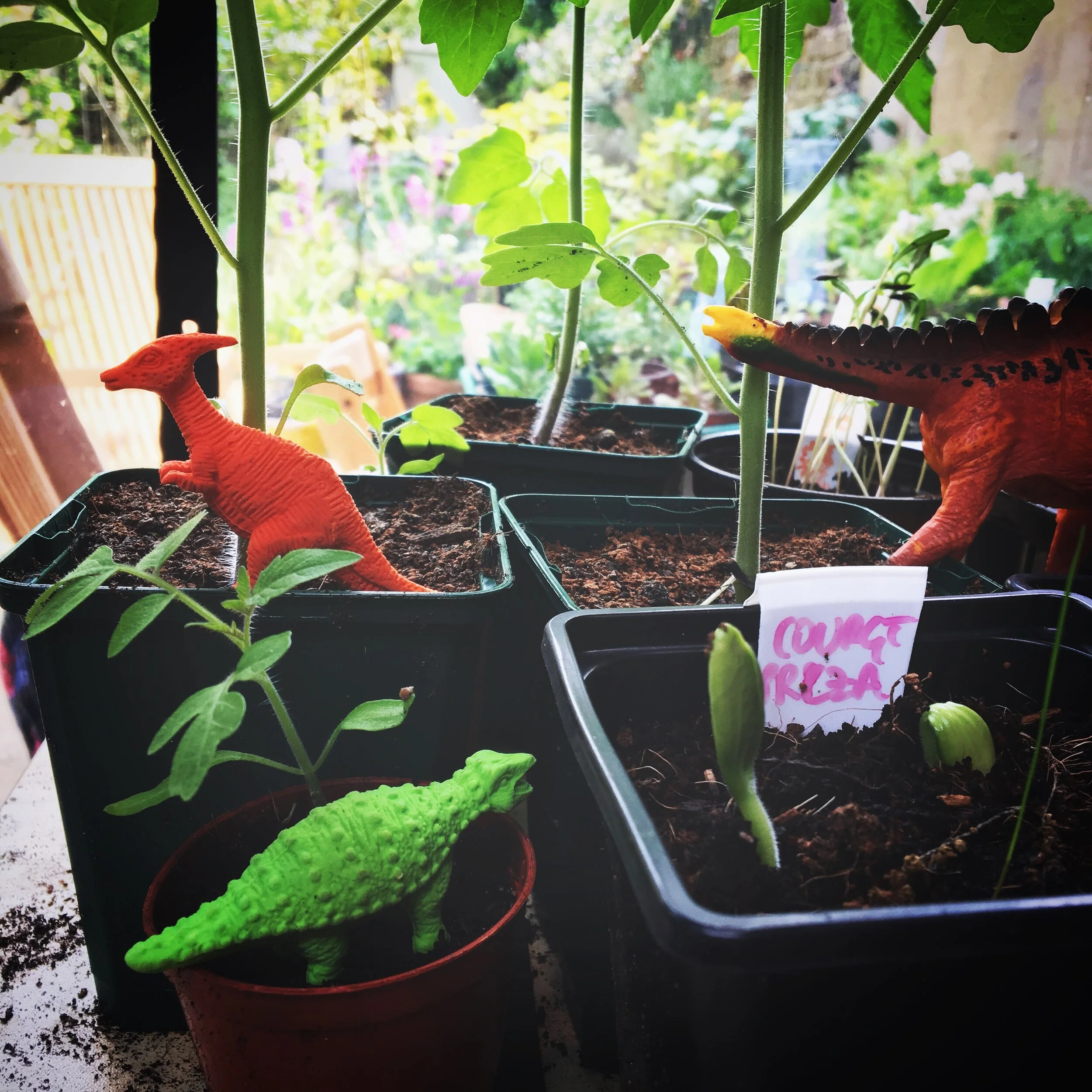Parenting and Potting on
I can be a horribly inconsistent gardener. Each spring I am dillgent and spend all hours that my son sleeps busily getting on with things. But as the garden matures, my own commitment to its upkeep starts to slip. After years of feeling guilty about this, I’ve realised that it’s not because I’m fickle and lose interest or energy, it’s that the gardening jobs in early spring kindle hope and capture my imagination in a way that primping a garden in full bloom never will.
Of all the spring jobs I love, pricking out and potting on seedlings has to be my favourite. Yes, true, it helps that I can do it in the evening at the kitchen table accompanied by a good scotch or a crisp glass of wine. I also find it a very meditative task: repetitive enough to allow the mind free range but still requiring attention and care. Above all, it is a task that connects me to the garden, as I take the time to engage with and care for each of the plants that will go on to serve me so well for the rest of the year.
Pricking out seedlings with a glass of wine and an episode of House - the perfect way to spend a spring evening
This early care for a plant is not unlike early care for a child: providing an opportunity to bond but also the great responsibility of giving them the best possible start in life. The development and nurture of plants in their earliest stages goes on to have a huge impact on their final growth and, as with parenting, this can lead to no end of anxiety over getting it right. Consistent moisture early on allows seedlings to plump and fill out, setting the framework and structure for their form as they grow, while feeding them the right diet is just as important, although I’m finding this is at least much easier with passive seedlings than with a rebellious toddler.
I have already had several parenting fails this year. Struggling to find seed compost under lockdown and too impatient to wait for a better alternative, I sowed a number of seeds into quite a chunky multipurpose compost. They germinated well but have since struggled forward, their lower leaves showing signs of malnutrition and were rapidly overtaken by seed I sowed two weeks later in a good seed mix.
As plants head into their teenage the house begins to feel crowded with their gangly forms, but the responsibility of care is in no way diminished even if I try to give them the space to do their own thing. An over fussy parent, I quite like to sow things in trays where possible and them prick them out and pot them on several times, particularly with plants like cosmos and tomatoes which respond to being transplanted deeply by putting out new roots. In their early days, I cluck as my cosmos become increasingly stretched and thin (gardening is the only example of where being ‘leggy’ is not a compliment), and I try to fatten them up as I bury them deeper and deeper. In truth, there is always a period in April where many of my seedlings are a bit lanky and, like a kid wedded to their x-box, I can’t help but feel they need some time outside.
Finally they are ready to leave home, and the parent’s task becomes one of fostering independence, toughening them up for life on their own. I don’t have a cold frame, but small plants are moved onto our patio during day times and gradually hardened off to face the realities of the outside world. When they do finally move into the garden and put down roots I will still be there watching from a distance, trying to give them their independence but desperately worried about slugs or a sharp frost.
Young plants on our patio table, approaching graduation
Like parents, we can never get it 100% right no matter how hard we try, and will always blame ourselves for their failings and be uncertain how much credit we can take for their triumphs. But there is great consolation in the knowledge that, like children, young plants show remarkable resilience and, once we have nurtured them through these earliest days, they will go on to thrive without us, shaped subtly by our support and care, but brilliant adults in their own right.




